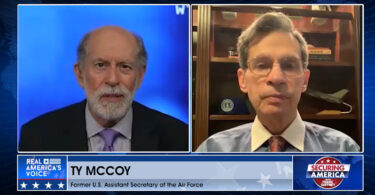By Forrest L. Marion, Ph.D.
Retired U.S. Air Force officer and military historian
Recently, “Real Time” host Bill Maher came out in favor of meritocracy.
Maher identified professional sports as the “last refuge of meritocracy in America.” He continued, “Sports is the last place where it doesn’t matter who you are or where you’re from, just what you do.”
Until the last few years, one might have expected the U.S. Department of Defense to have held stubbornly to Maher’s newsworthy “just what you do” matters observation.
Since 2021 the Pentagon’s unmistakable abandonment of meritocracy in lieu of “diversity” has contributed to an overall decline in combat readiness
– one documented by the Heritage Foundation, among others.
This dangerous trend is despite an end to U.S. contingency operations in Afghanistan and reduced operations in Southwest Asia, which under normal circumstances ought to have facilitated a degree of reconstitution of forces and resulting increased readiness.
In May 2021, the firing of Lt. Col. Matthew Lohmeier served as an early indicator of the Biden Pentagon’s commitment to radical, ideologically based priorities at odds with traditional merit-based readiness.
Lohmeier, a U.S. Space Force squadron commander, had just published a book that addressed his views on quasi-Marxist influences within the U.S. military.
During a podcast promoting his book, Lohmeier stated that Secretary of Defense Lloyd Austin was promoting “diversity, inclusion, and equity [DIE or DEI],” which are “rooted in critical race theory [CRT], which is rooted in Marxism.”
Lohmeier was immediately relieved of command on the grounds of participating in “prohibited partisan political activity.”
Following Lohmeier’s firing, Sen. Roger Wicker (R-Miss.) wrote a letter to Secretary Austin to express his concerns, beginning with the fact that Lohmeier had been relieved prior to any investigation. Wicker declared,
If the Department of Defense finds that Lt. Col. Lohmeier’s statements on CRT qualify as a “partisan cause,” it would then follow that the Department recognizes CRT itself as reflecting one side in a partisan debate. Yet if CRT is partisan, it must be asked why this ideology is increasingly being pushed on U.S. service members. It has become increasingly clear that the Department is actively pushing CRT through “diversity and inclusion” trainings, recommended reading materials, and cadet instruction. The Department therefore cannot call Lt. Col. Lohmeier’s statements on CRT “partisan” without being implicated in the same partisan advocacy.
When queried, Wicker’s staff found no record of a response from the Secretary.
In the last two years, the Pentagon has doubled down on pushing the “partisan cause” of CRT-DEI as Senator Wicker described.
Having served four decades with the U.S. Air Force in one capacity or another, I’ll briefly address my own service – although the entire defense establishment is troubled by the same issues.
In perhaps the most ideologically grounded illogic, the Air Force has said it has too many white, male pilots. (It also has a pilot shortage.) Since 2021 the service has announced new measures to increase the numbers of pilots from minority groups.
As Maher opined, “. . . most Americans [seem] to agree, if they’re on an airplane, they want a cockpit that looks like America, but they’d also like someone up there that knows how to fly the plane.” Maher’s half-humor, half-truth is insightful, especially in an Air Force context.
Although other strategies may offer perceived short-term gains, only meritocracy promises long-term success.
As countless institutions in American life and culture have demonstrated – including the armed forces – when a commitment to merit-based advancement is clear there will always be at least a few individuals from across the spectrum (however defined) who are willing to make the personal sacrifices needed to succeed in their chosen path.
What happens in such institutions? In time, they come to “[look] like America.” Is it an overnight change? No, it takes time, like anything else worth doing.
This is the beauty of the traditional American way, today under assault from nearly every quarter.
For plenty of examples in an Air Force context, simply google “Air Force biographies” and peruse the careers of those from various backgrounds who attained general officer rank. That alone should suffice to call into question the spurious assumptions of those demanding diversity.
Six months ago, U.S. Supreme Court Justice Clarence Thomas pointed out that diversity “seems to mean everything for everyone.”
As renowned scholar Thomas Sowell wrote in Dismantling America,
“The mystical benefits of diversity are non-existent, however politically correct it is to proclaim such benefits.”
Not only does the prioritizing of diversity degrade meritocracy, it also necessarily leads to serious questions regarding those who are advanced under its perceived, or actual, lowered standards.
As one noted military historian and former board member of a state university puts it,
In the long run, DEI is a trap for minorities. It denies them the rigorous education they need to truly master any field, and it cheapens any accomplishment by those minority members who DO work hard as there is always the suspicion by those who first meet them that they only got ahead because of a DEI ‘thumb on the scale.’ . . . Worse, it builds in a lingering mistrust in any organization. . . . That is disastrous for the nation in the long run.
The better course is this: rather than prioritizing diversity at all costs – and achieving mere mediocrity – stay the course with meritocracy and, in time, realize the beautiful, broadened spectrum of humanity that makes up our armed forces, including the United States Air Force.
Forrest L. Marion, Ph.D., is a retired U.S. Air Force officer and military historian. He is the author of Flight Risk: The Coalition’s Air Advisory Mission in Afghanistan, 2005-2015 (Naval Institute Press, 2018), and (forthcoming), Standing Up Space Force: The Road to the Nation’s Sixth Armed Service (Naval Institute Press).








Leave a Comment